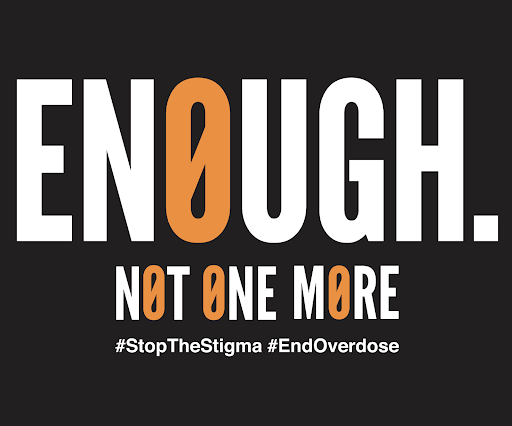Last week, staff and members from Not One More NJ met with Valerie Mielke, the Assistant Commissioner for the Division of Mental Health and Addiction Services at the NJ Department of Human Services. We were also joined by Adam Bucon, State Opioid Treatment Authority, and Michael Petruzzelli, Policy Director for the DHS. We talked about our shared goal of expanding access to medication assisted treatment (MAT) and mobile MAT units in New Jersey, and how we can work together to make sure that people struggling with substance abuse disorder are able to get treatment that meets their needs.
MAT is considered the gold-standard of treatment for substance abuse disorder, and has been shown to reduce the risk of overdose by 50% while increasing long term recovery. Yet only 22% of those who needed treatment like MAT in 2019 received it, and 40% of those who wanted to get treatment were unable to. This is bad news given the deep impact the overdose crisis has had on our state over the last few years. 2021 was the worst year on record for preventable overdose, with over 100,000 deaths nationwide. We have to take action to increase access to MAT and equip communities with much needed harm-reduction tools.
We heard from multiple members how MAT changed their lives and provided a pathway to recovery—but for many, this pathway is still out of reach. As we discussed with Assistant Commissioner Mielke, one barrier to MAT access is transportation to and from appointments. NJOP member and Sea Change RCO founder Elizabeth Burke Beaty shared that one of the people she assists has a daily 6-hour commute to get to and from his clinic: a one hour walk to the bus stop, a 45 minute bus ride, and another one hour walk to the clinic. Getting to and from treatment is basically a full-time job for him and many others.
This is where mobile MAT can make a huge difference. For people living in rural and suburban areas in South Jersey where public transportation is inaccessible or unreliable, mobile MAT can help them avoid making grueling commutes like the one Elizabeth told us about. Right now there are five mobile units in operation in New Jersey and three more on their way, but the road to getting these units licensed, registered, and approved is longer than we’d like – it may take up to a year until they’re approved and ready to provide treatment. Plus, these three units will be able to prescribe treatment, but not administer it – in other words, they’ll be able to write a prescription for buprenorphine and/or methadone that patients can pick up at a pharmacy, but they won’t be able to administer the medication on-site.
Another barrier to MAT access is something called the ‘X-waiver’: a federal restriction that prevents health care providers from prescribing buprenorphine, a safe and effective FDA-approved medication that prevents overdoses and supports recovery. Due to the X-waiver, only 1 in 12 eligible health care providers can prescribe this life saving medication to patients with opioid use disorder. Congress passing the MAT Act (Mainstreaming Addiction Treatment Act) would eliminate this outdated waiver requirement that discourages practitioners from providing MAT and creates further barriers to prescribing treatment for substance use disorder. This legislation will open the doors to recovery for countless individuals, equipping communities with the tools and treatment they need to evade preventable overdoses.
As of last week, the MAT Act passed out of committee and will (hopefully) soon be heading to the House floor. Click here to learn about NJOP’s recent progress and victory on the MAT Act.

